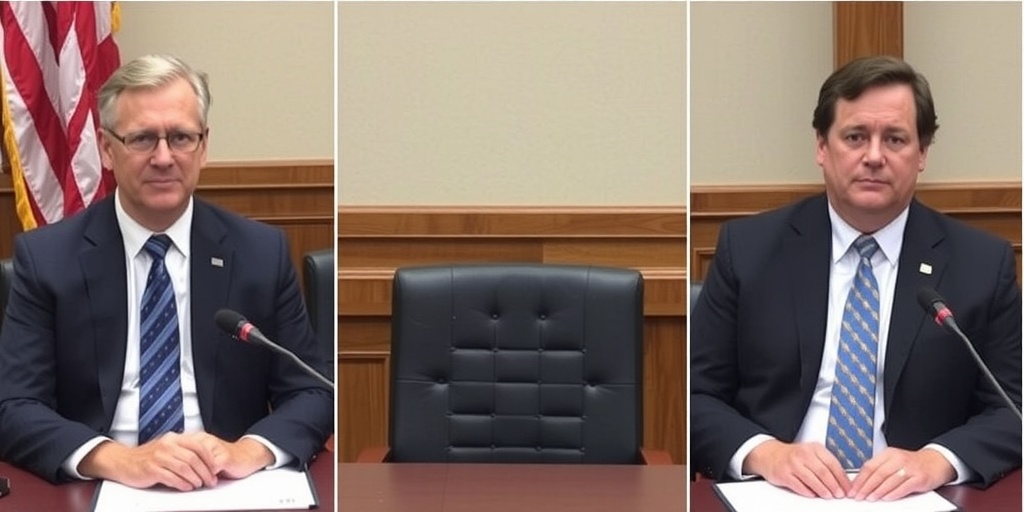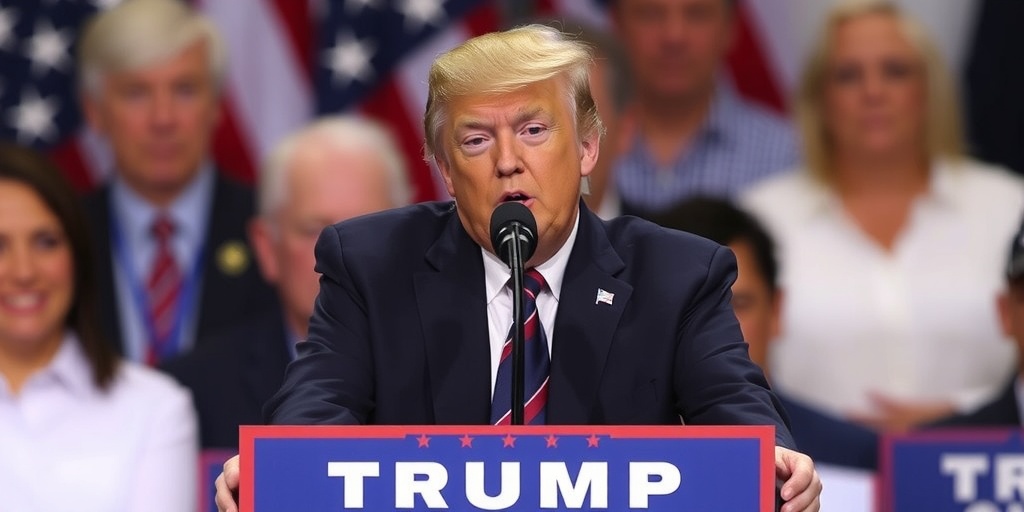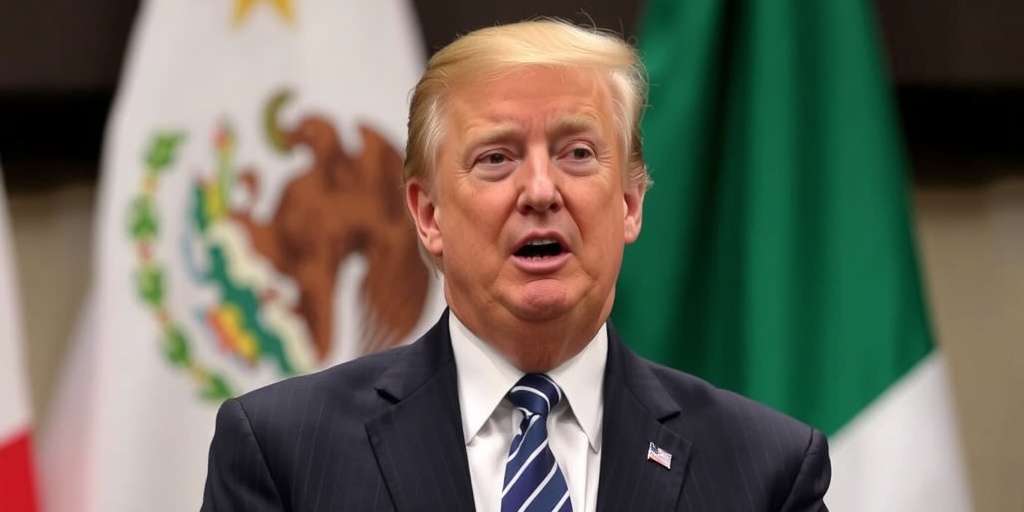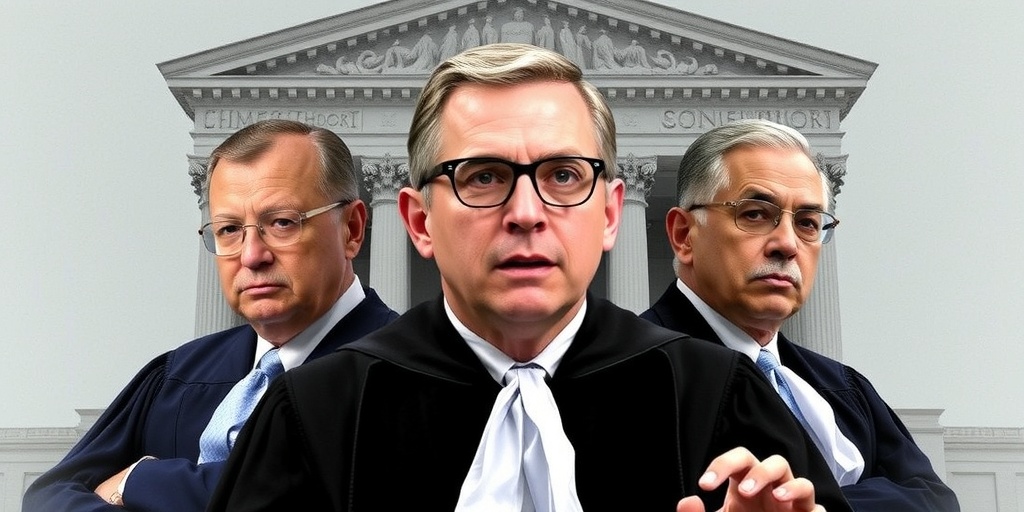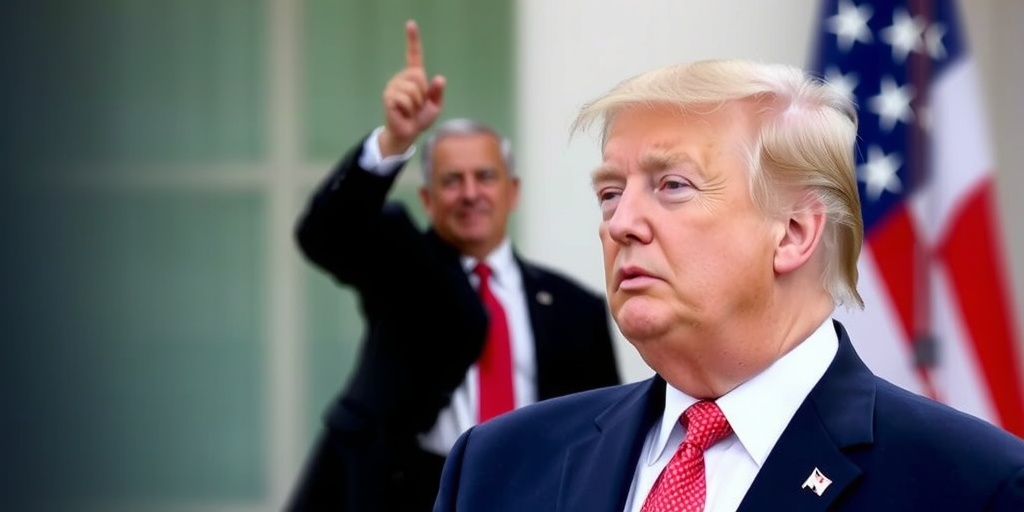Now Reading: Trump Fires Two Privacy Watchdog Members Who File Lawsuit
-
01
Trump Fires Two Privacy Watchdog Members Who File Lawsuit
Trump Fires Two Privacy Watchdog Members Who File Lawsuit
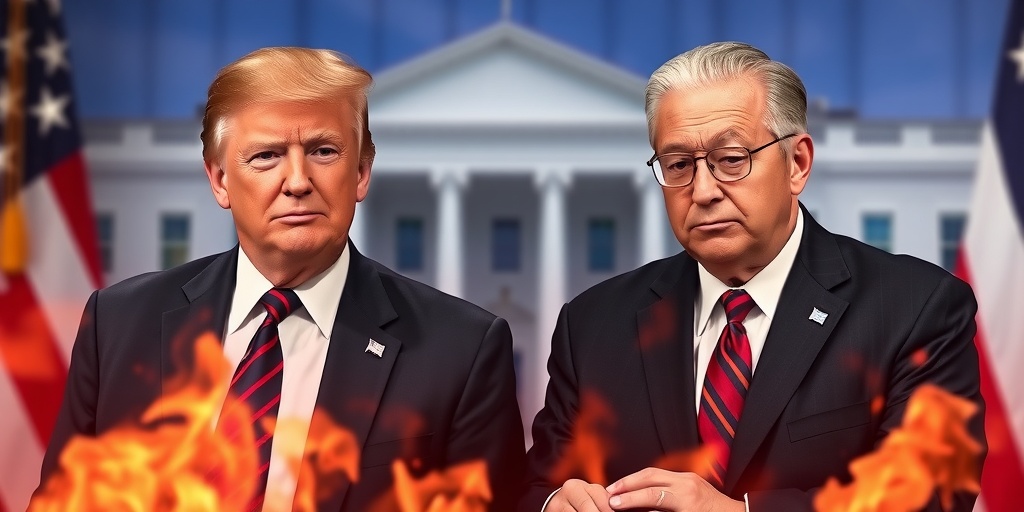
Former Officials Sue Trump Over Illegal Firings from Civil Liberties Board
In a significant legal move, two former members of the Privacy and Civil Liberties Oversight Board, who were dismissed by President Trump, have filed a lawsuit against the government. The plaintiff, Travis LeBlanc, along with Edward W. Felten, is seeking a court ruling to declare their firings illegal and to reinstate them to their former positions. This lawsuit is the latest in a series of legal challenges stemming from Mr. Trump’s controversial dismissal of key government officials during his administration.
On January 27, 2025, President Trump ousted the two officials along with Sharon Bradford Franklin, another member of the board. Although Franklin was scheduled to leave two days later, her dismissal has added weight to the ongoing legal contention. Following Trump’s actions, the Privacy and Civil Liberties Oversight Board, which was established to monitor government surveillance and ensure civil liberties protection, was left severely impaired; it had only one remaining member, Beth Williams, who had been appointed by Republican leaders. The board’s operation became effectively paralyzed, unable to begin any new investigations or publish reports due to its diminished membership.
The lawsuit highlights a broader pattern of legal disputes resulting from Mr. Trump’s firings, which many see as an assault on the traditional structure of federal governance. Critics argue that Trump has frequently violated statutes that dictate how and when certain officials can be removed from office. As a result, numerous legal cases challenging these firings have emerged, potentially positioning them as critical tests for the judicial system regarding the scope of presidential power as defined by the Constitution.
Central to the legal argument made by LeBlanc and Felten is the assertion that their terminations were unconstitutional. They point out that many of the previous lawsuits related to Trump’s firings have involved explicit statutory provisions that limit a president’s authority to dismiss certain officials without cause. However, the case concerning the Privacy and Civil Liberties Oversight Board presents a more complex challenge since Congress did not explicitly include a clause outlining that board members cannot be removed without cause, even though it established the board as an "independent" agency.
Despite the lack of specific legal language restricting presidential removals, there is a prevailing understanding that officials within independent agencies possess inherent protections against arbitrary dismissal. This presumption draws on precedents established by previous Supreme Court rulings, such as a 2010 case relating to the Securities and Exchange Commission. In that ruling, the court did not definitively decide on the matter but assumed, for the sake of argument, that implicit protections against arbitrary dismissal existed for independent agency heads.
Legislators originally designed the Privacy and Civil Liberties Oversight Board to allow the president to remove members “at pleasure.” However, in a subsequent revision of the statute, Congress converted the board into an independent agency, which purportedly changed the rules of engagement concerning member removals. The plaintiffs argue that this legislative adjustment, along with other contextual factors, should compel the court to interpret the law as barring unjustified terminations.
The attorneys for LeBlanc and Felten contended in their complaint that permitting removals without cause would fundamentally conflict with the intended meaning of the law and erode the very framework intended to safeguard agency independence. They emphasized that the established role of the Privacy and Civil Liberties Oversight Board is critical, particularly in the wake of national security concerns that emerged after the September 11 attacks.
The Privacy and Civil Liberties Oversight Board was tasked with the crucial responsibility of investigating national security activities that could infringe upon individual rights and liberties. This includes oversight of surveillance methods affecting American citizens and the implications of terrorism watch lists on civil rights in contexts like airport screenings.
The agency is structured to comprise five members appointed by the president and confirmed by the Senate. Each member serves a six-year term, with the possibility of extending their term if a successor has not been confirmed. The board’s bipartisan composition is underpinned by an appointment process that includes selections made by congressional leaders of the opposition party, ensuring a balanced approach to oversight of government actions.
As this lawsuit unfolds, it could have far-reaching implications for the understanding of executive power in the United States and the independence of federal agencies. The outcome may ultimately set a precedent regarding whether the president has the unilateral authority to dismiss officials at will, especially those overseeing critical functions within the government. The legal battle ahead will likely draw significant public attention and could contribute to the ongoing discourse surrounding executive authority and accountability in American governance.
Stay Informed With the Latest & Most Important News
Previous Post
Next Post
-
 01New technology breakthrough has everyone talking right now
01New technology breakthrough has everyone talking right now -
 02Unbelievable life hack everyone needs to try today
02Unbelievable life hack everyone needs to try today -
 03Fascinating discovery found buried deep beneath the ocean
03Fascinating discovery found buried deep beneath the ocean -
 04Man invents genius device that solves everyday problems
04Man invents genius device that solves everyday problems -
 05Shocking discovery that changes what we know forever
05Shocking discovery that changes what we know forever -
 06Internet goes wild over celebrity’s unexpected fashion choice
06Internet goes wild over celebrity’s unexpected fashion choice -
 07Rare animal sighting stuns scientists and wildlife lovers
07Rare animal sighting stuns scientists and wildlife lovers













